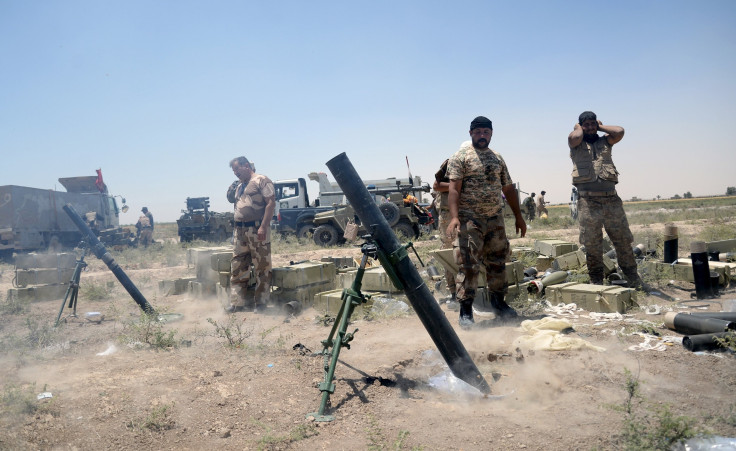ISIS In Fallujah: Tribes, Airstrikes For Islamic State Preventing Civilians From Leaving Strategic City As Operation Stalls

The battle for Fallujah in Iraq's western Anbar province has come to a standstill because the U.S.-led coalition and Iraqi military forces have been unable to target the Islamic State group without also hitting civilians still living in the city, soldiers in Iraq's government ranks told International Business Times Monday. They cannot defeat the Sunni militant group until all the civilians are evacuated from their homes and transferred to a safe haven camp southeast of the city, the government forces said. However, some residents of Fallujah were not leaving the city because their tribes, made up of those who support the Islamic State group, have forbidden them from doing so.
Although it was not clear exactly how many civilians have been killed as a result of coalition airstrikes, more than 3,200 people have died in the city since the beginning of 2014, a doctor in Fallujah said Monday, Rudaw reported.
“Due to military campaigns and random bombardments of Iraqi jets and coalition warplanes on Fallujah neighborhoods since early 2014, 3,243 corpses have been transported to the hospital, 279 of them were women and 249 were children," said Ahmed Shami, the head of the General Hospital of Fallujah.
Despite Iraqi government forces being in control of almost all of the main roads that lead out of the city, providing safe routes, civilians were not leaving, Radio Free Liberty reported. Militants for the Islamic State group, also known as ISIS or ISIL, were dispersing themselves among the residents to avoid detection, making it difficult for the U.S. coalition to bomb them without also hitting civilians, Sunni sheikhs in the area said.
ISIS has controlled large swaths of land in Fallujah for several months but recently made a push to take over complete control of the city, which lies less than 50 miles from the capital of Baghdad. If ISIS succeeded in capturing all of Fallujah, it would put Baghdad squarely in its crosshairs. Anticipating the Sunni militant group's advance, Shiite volunteer forces, also known as the Popular Mobilization Committee, launched an offensive in the area at the end of June.
The U.S. coalition has been dropping bombs on Fallujah and its surrounding area for months, fighters said, but the attacks have not succeeded in eliminating ISIS's presence because many of the Sunni sheikhs in the area were supporting the militant group with cash and weapons. Some have even pledged allegiance to the group.
Anbar province is predominantly inhabited by Sunni tribes and is governed by Sunni families that have amassed money and prestige over several decades. The Islamic State group is also Sunni, a sect of Islam that differs from the Shiite-dominated Iraqi government. Many of the men fighting the Islamic State group in the region were part of the U.S. “Sunni Awakening” strategy in 2007 that funneled arms to Sunni tribes in western Iraq to stop al Qaeda.
The U.S. tried to implement a similar strategy against ISIS and enlisted tribal leaders to direct the fight against the militant group using American weapons. However, that strategy fell apart because the weapons the U.S. promised never made it into the hands of the tribes in Anbar.
The tribal allegiance to ISIS is the main factor preventing Shiite volunteer forces and Iraqi security forces from defeating ISIS in Fallujah. Those same alliances lead to the government's defeat in Ramadi, another major city in Anbar province. ISIS now controls all of it.
The tribal leaders provided the Sunni militant group with intelligence, cash and weapons that helped it defeat the U.S.-backed Iraqi military forces and gave it the upper hand in the battle.
“There are some parts of the Sunni tribes, or certain members, that actually fought with ISIS,” Sheik Aref Mukhbar Sayed Alwany, a Sunni tribal leader in Ramadi told IBTimes in May during the Ramadi battle. “Others provided the group with moral and logistical support.”
© Copyright IBTimes 2025. All rights reserved.





















